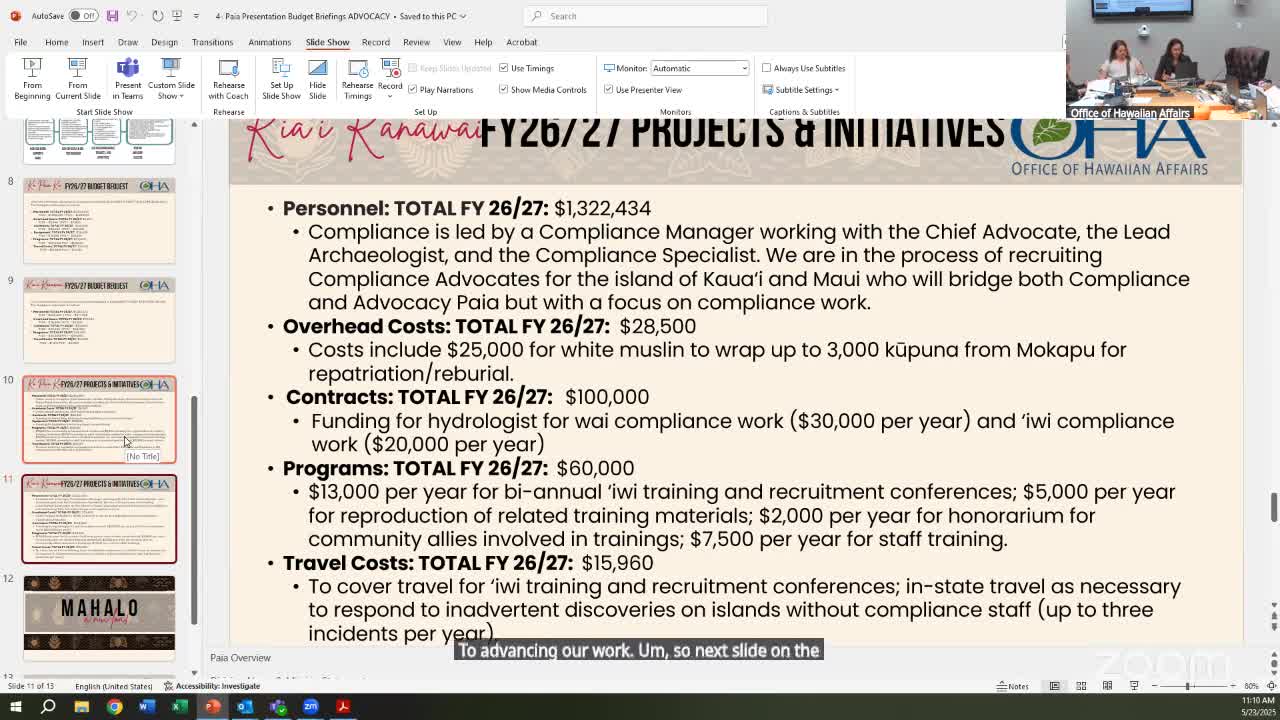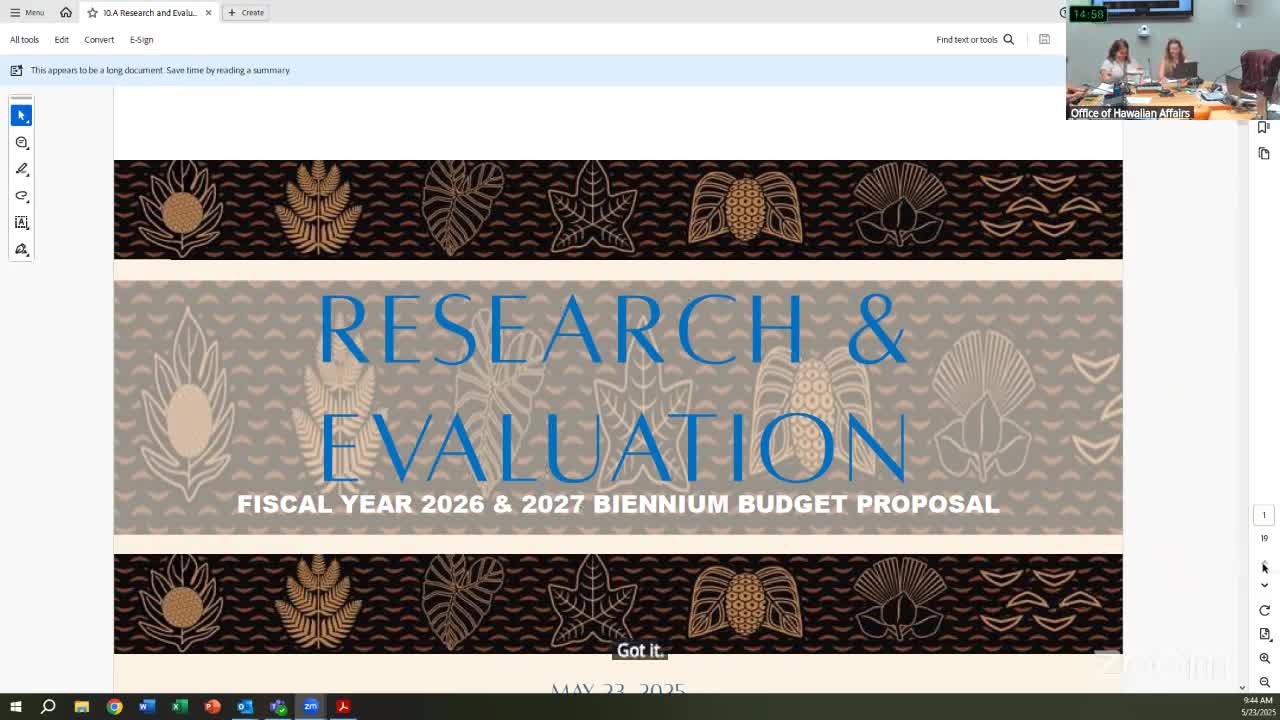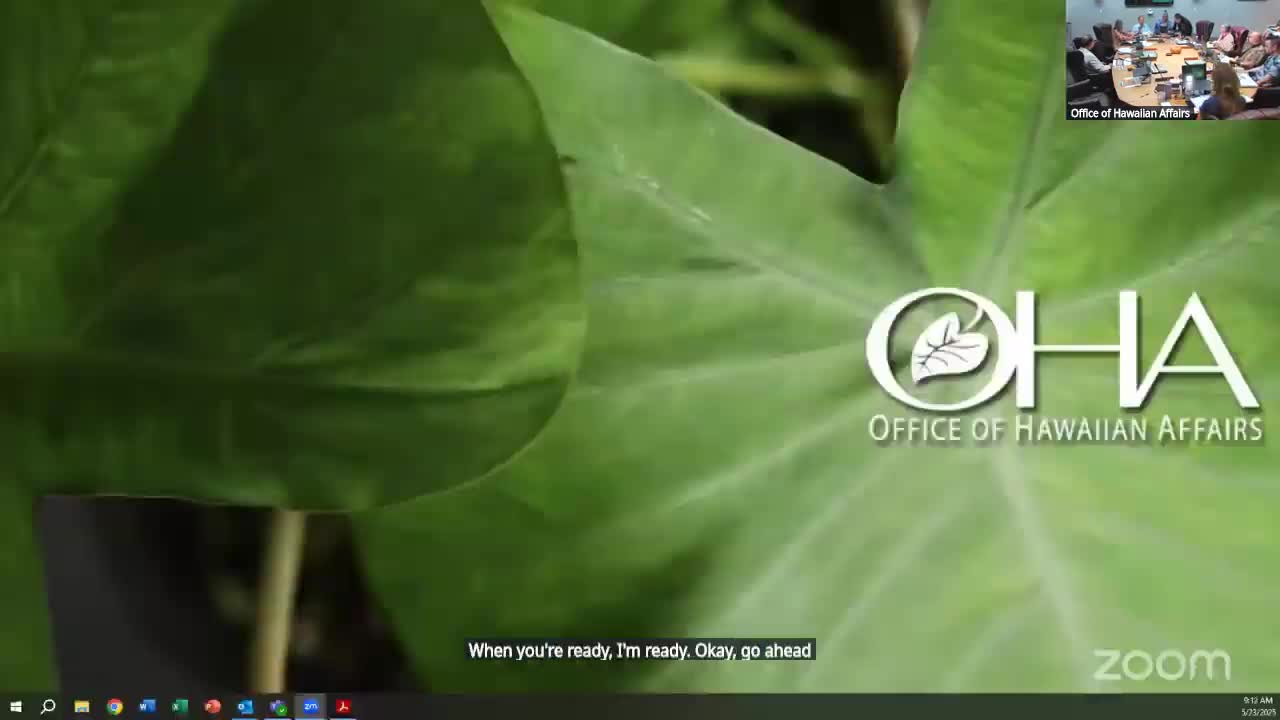Article not found
This article is no longer available. But don't worry—we've gathered other articles that discuss the same topic.

Advocacy and compliance present hires, burial‑site work and ocean policy priorities for OHA budget

OHA research office asks for money to rebuild Papakilo, Kipuka and Native Hawaiian Databook; trustees press for larger tech plan

